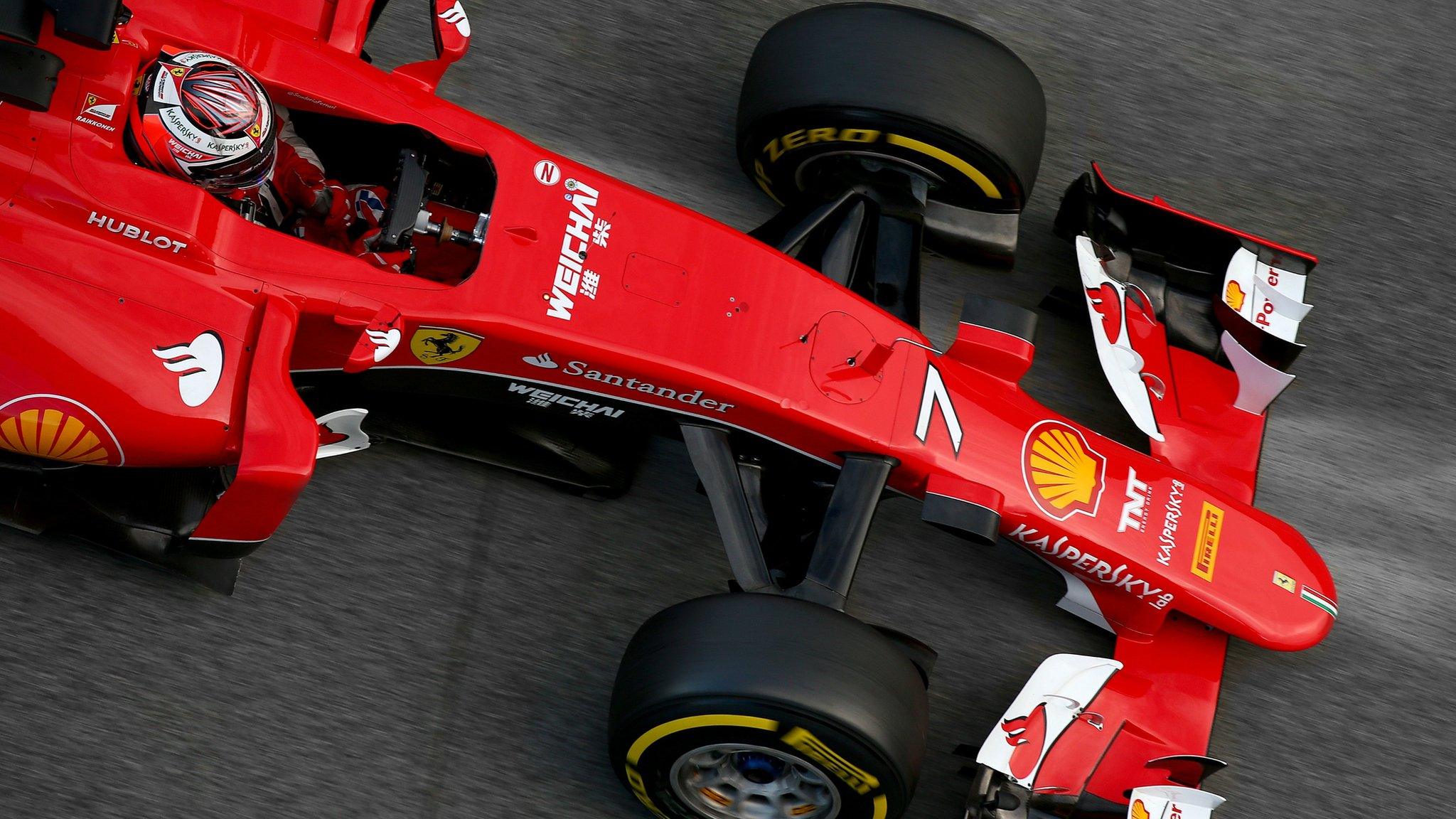What next for McLaren-Honda?
- Published
- comments
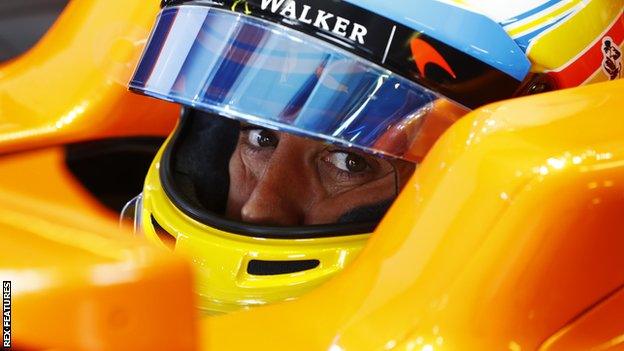
Fernando Alonso: "We are McLaren-Honda. If we are not in the top five, on the podium, the rest is losing time."
Not for the first time time, McLaren-Honda had reason to be grateful to Fernando Alonso at the Australian Grand Prix.
Until a late-race car problem forced him to retire, the Spaniard was on course to secure an unlikely point for a team that, even some insiders will admit privately, is in crisis at the start of the 2017 Formula 1 season.
Pre-season testing had gone so badly for McLaren that it looked like they would struggle not to be on the back of the grid. After some hasty work on reliability by Honda and improvements to the car, Alonso qualified 13th.
For much of the race in Melbourne, he was in 10th place, valiantly holding off Esteban Ocon's Force India, which had a 27km/h advantage on the straight. McLaren racing director Eric Boullier described Alonso's drive as "prodigiously impressive".
The same could be said of many of his races in an under-powered McLaren over the last two years - such as his fifth places in Monaco and the USA last year, or his drive to seventh from last on the grid in Belgium. Results that helped McLaren secure sixth place in the championship.
In two separate news conferences over the weekend, Lewis Hamilton expressed his regret that Alonso was not racing at the front, saying he "deserved it", as one of the best drivers on the grid.
As Hamilton said: "It would be great to have Fernando up there but it doesn't look like it is going to happen any time soon."
Indeed it doesn't. While Alonso's achievements at Albert Park amount to positive progress in the context of McLaren-Honda's dire pre-season, they are a long way from the ambitions of this once-great team and its still-great number one driver.
What has gone wrong?
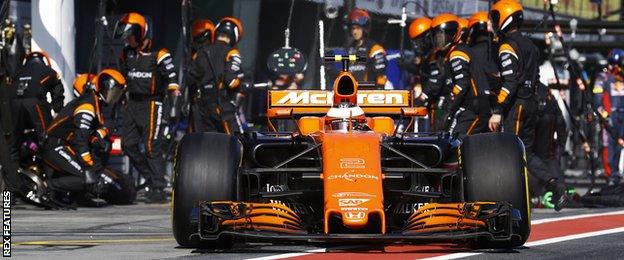
Stoffel Vandoorne finished 13th in Australia
This was the year the McLaren-Honda alliance was supposed to finally hit its stride after two difficult seasons. Alonso spent much of last year saying how the change in regulations gave McLaren a chance to close the gap on Mercedes, and Honda promised it would make a big step forward with its engine.
Even as recently as the launch of the McLaren car in late February, Honda F1 boss Yusuke Hasegawa was expressing his hope that the redesigned Honda engine would match the performance of Mercedes' 2016 power-unit by the start of the season.
It has not worked out that way. Pre-season testing was beset by difficulties, Honda getting through at least five engines in the course of eight days. Alonso said the engine had "no power and no reliability".
There were several problems, but a couple of fundamental ones: a major vibration that was either breaking the engine, or damaging ancillaries enough to make it shut down; and less power than last year's engine. Informed estimates put its deficit to the new Mercedes engine at somewhere between 120-160bhp.
The vibration problem is severe enough that Honda should, in one way, be applauded for the progress it made in enabling Alonso, at least, to run a pretty much normal weekend. The same could not be said for his new team-mate Stoffel Vandoorne, but that's another story.
But while the engine ran relatively reliably, it still badly lacked performance, and it is clear that patience is running out, the partnership close to breaking point.
What does Alonso think about this?
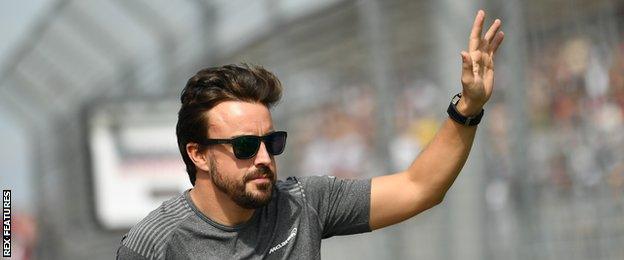
Fernando Alonso returned to McLaren in 2015, having raced for them in 2007
While expressing the need for improvement, Alonso was mostly sanguine about the situation in his public appearances over the course of the weekend. But there were still glimpses behind the mask.
He sat stony faced in the team's post-qualifying news conference, until the question of how he motivated himself to go through another season like this was brought up. Where's your head at, he was asked?
"I expect a big change in the team, a big reaction," he said. "We will not be 13th all season. Or I will not be."
The message was clear. Sort it out, or I'm off.
McLaren flirting with other partners
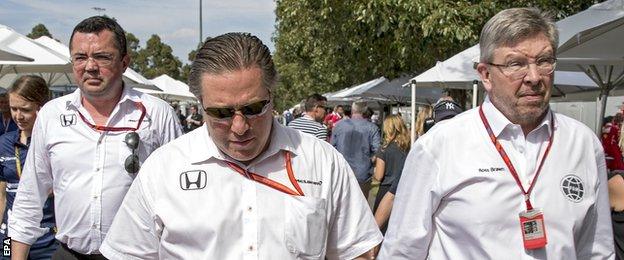
McLaren have had two difficult seasons since the start of their relationship with Honda in 2015
The big question is what happens next. BBC Sport revealed two weeks ago that McLaren had made an initial approach to Mercedes about a potential engine supply in the wake of the problems in testing. This despite a "multi-year contract" with Honda.
It was notable at the Australian Grand Prix that when asked about this development, McLaren racing director Eric Boullier neither denied it, nor made any attempt to play down the potential of the team splitting with Honda.
"Obviously we are looking at every option to recover and catch up," Boullier said, "because we are definitely not in the position that we were expecting to be and we want to be."
Hasegawa admitted: "We are having a strong pressure from the team and from the drivers. We try to keep improving."
Should McLaren split with Honda?
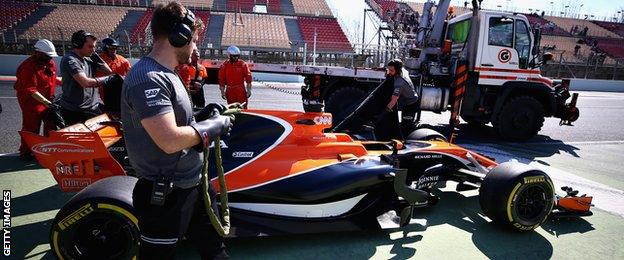
McLaren-Honda expected a big step forward this year after finishing sixth in the constructors' championship last season
Self-evidently, McLaren's decision to talk to Mercedes, even if only briefly, means the team's senior management are considering whether they should try to get out of their contract with Honda. Which means they must have doubts about whether the Japanese motor giant will ever be able to provide a competitive engine during the life of their partnership.
Honda contribute something in the region of $70m a year and free engines to McLaren - close to a net $90-100m when the cost of buying a customer engine is added. Asked how it felt about the team talking to a rival, Hasegawa said: "This is just a rumour."
Challenged that it was a fact, he said: "I don't know. I don't care about that. The thing we have to do is keep concentrating."
On the subject of potentially changing engines, Boullier said: "I am not going to comment on these kind of discussions. It is a private discussion we have with Honda to recover, considering all options.
"We are responsible for McLaren and Hasegawa-san is responsible for Honda. As partners we try to help each other and support each other because the key secret is to be as integrated as possible."
His answer did little to diminish the belief that McLaren are at least considering trying to find a way out of their contract with Honda.
The question is why they would think that was a good idea.
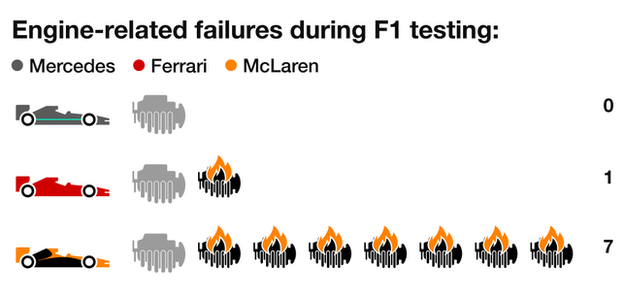
On the face of it, it sounds like one. On a simplistic level, it would seem logical that if a Mercedes engine was plugged into a McLaren, the car would be much more competitive.
Boullier claimed during winter testing that McLaren would win if it had a Mercedes engine. On a simple calculation of the minimum power deficit, a Mercedes engine might potentially make the McLaren in the region of two seconds quicker. Alonso was 3.2 seconds off the pace in qualifying.
So changing might - at best - put McLaren about sixth or so on the grid. But there are wider considerations than that.
For a start, where would the missing money come from? McLaren are run by very rich men - the Bahraini royal family is a 50% shareholder and 25% shareholder Mansour Ojjeh is a billionaire.
They could easily fund the shortfall if they wanted to - but that situation is sustainable for only so long.
McLaren's new executive director Zak Brown is the best sponsor-finder in the paddock. But in a difficult market, finding income worth $70m a year for a team struggling to score a point, even if he can sell it on the idea of switching to Mercedes is not going to be easy.
Beyond that, customer Mercedes engines is not a long-term strategy. Red Bull buck the trend, but it is widely accepted in F1 that if a team wants to win the title, it has to have a works engine partnership. And no other Mercedes customer team are close to the factory outfit's performance, despite the regulatory requirement to provide identical engines.
That's because F1 cars are complex pieces of machinery. The Mercedes car is designed around the Mercedes engine, which is built after conversations between the two arms of the team. The customers get what they are given and do not have the same opportunity for integration.
Then there is the question of how McLaren would get out of its Honda contract. Honda is showing no signs of wanting to quit. It sees F1 as a long-term project.
If McLaren sought a way out, Honda might acquiesce. But the company would be highly unlikely to pay any money in the form of compensation. It might even take offence, and sue McLaren. A case Honda has vastly more resources to fight than the team.
Once out of its Honda contract, McLaren would then need to look for another works engine partner. Yet not only are no other car companies expressing an interest in F1, but any approached would surely look at the way McLaren have treated Honda and wonder whether they were a team with which it was wise to get involved.
Should McLaren stick with Honda?
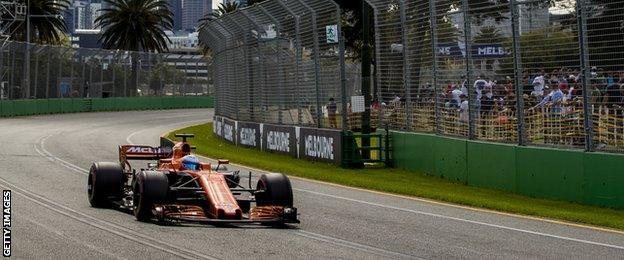
Fernando Alonso qualified 13th for the season-opener in Australia
The perceived risk in persevering with Honda is that it might never manage to produce a competitive engine, and that by the time it realises this and pulls out of F1, McLaren will be in such dire straits that the company would be on its knees.
But McLaren already have a relatively limited sponsor portfolio, with Honda providing the bulk of their income beyond official prize money. And if Honda did quit in, say, three years' time, the rules mean that one of the remaining engine companies would be obliged to supply McLaren then - so it is arguable they would be no worse off than they are now.
The alternative ending is that McLaren use this situation as an opportunity.
They can hope that their public flirting with Mercedes wakes Honda up to the need to do a better job. They could apologise privately, express their commitment to the partnership's success, and offer to work ever more closely together with Honda reach the standards required. And they could redouble their collective efforts to making it so.
Whether Alonso would hang around in that scenario is another question. But, brilliant though he is as a grand prix driver, McLaren have much bigger problems than that right now.
The Bahrainis, Ojjeh and Brown have some serious thinking to do. And any decision they make requires wisdom and long-term strategy, not short-term tactical opportunism.
- Published26 March 2017
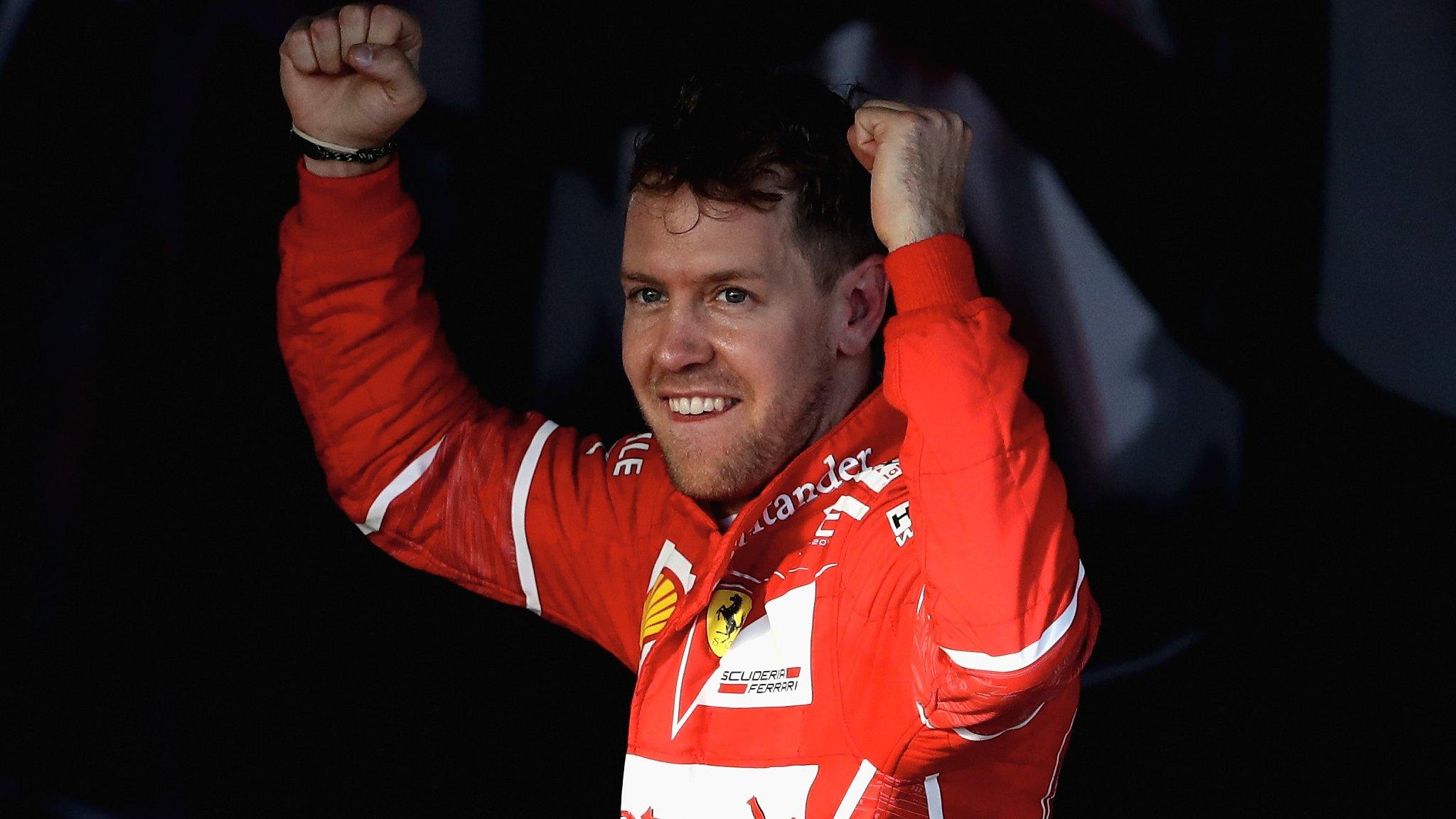
- Published25 March 2017
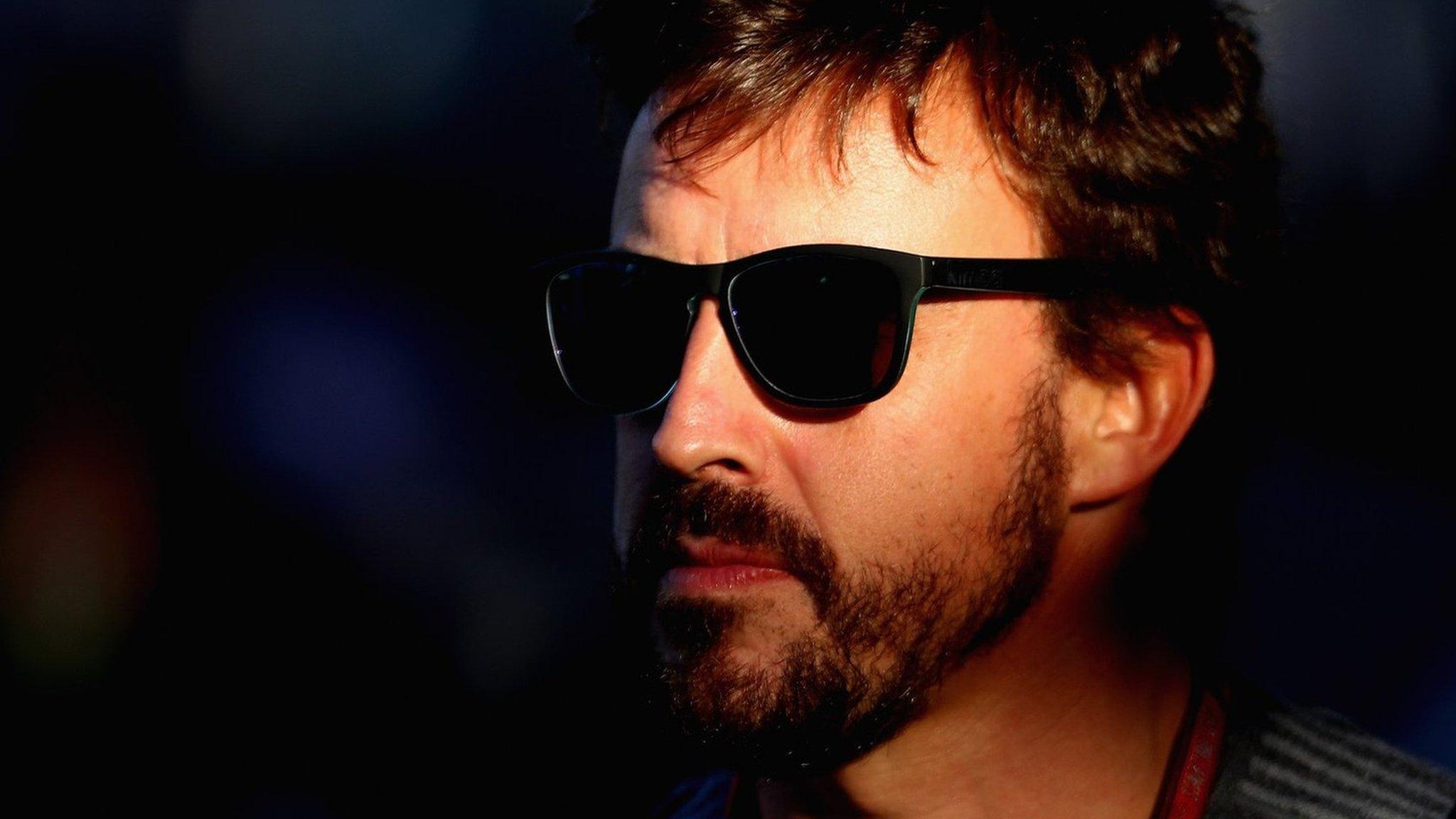
- Published23 March 2017
- Published21 March 2017
